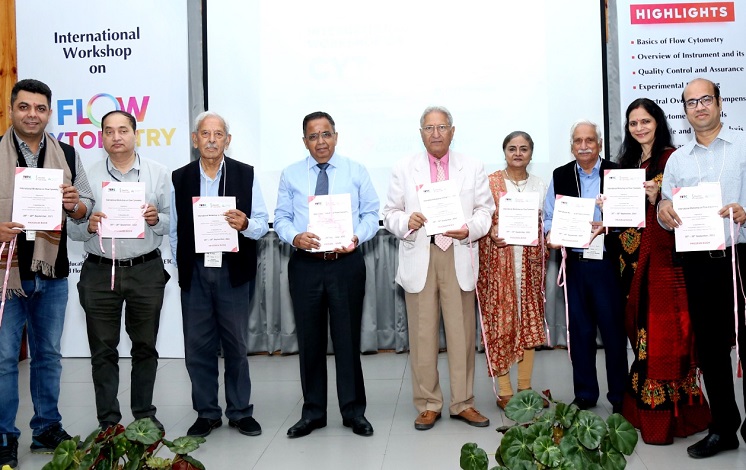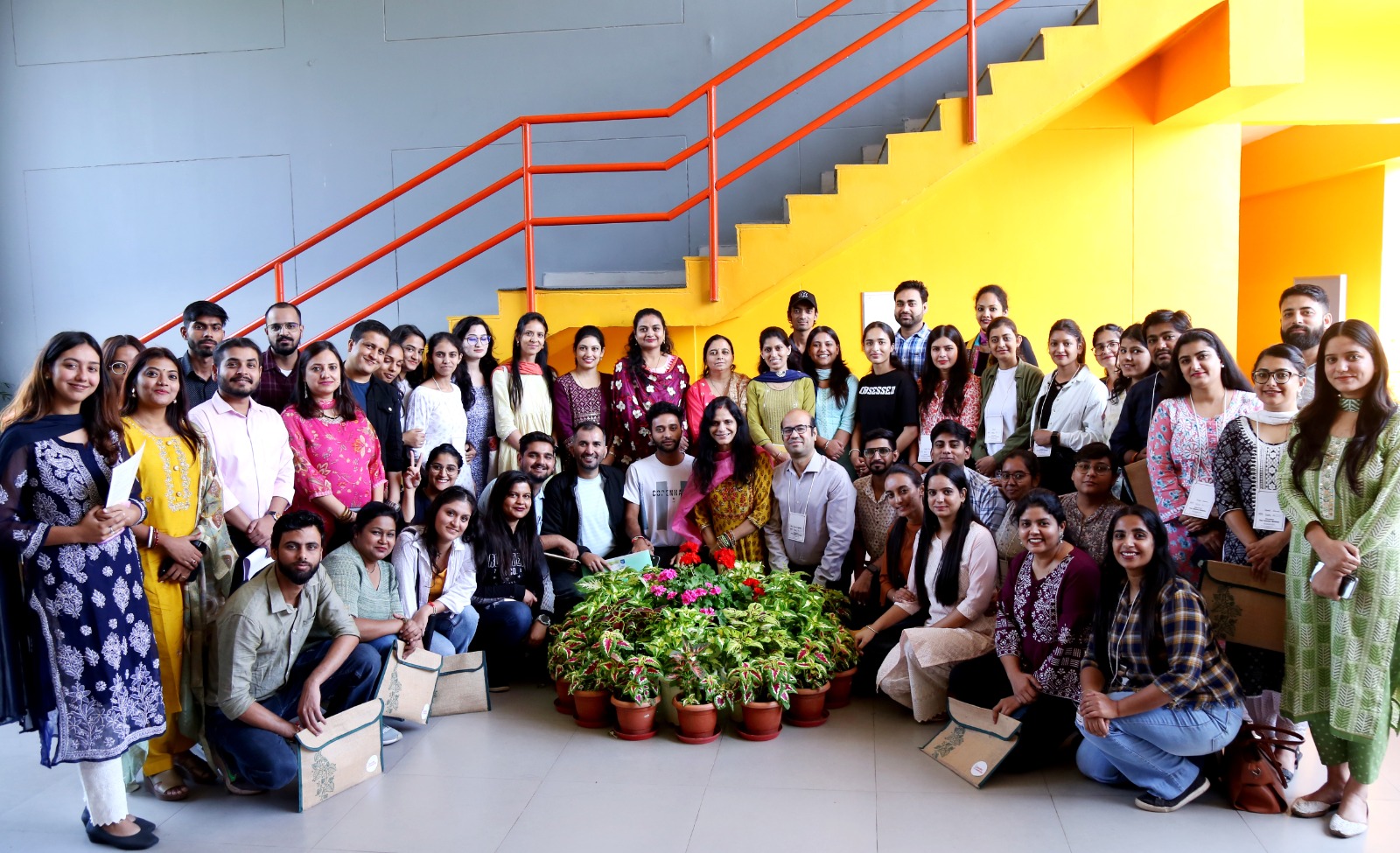
To demystify the complex field of flow cytometry, Shoolini University organised an International Workshop from September 26-28. The workshop was a collaborative effort with the Trust for Education and Training in Cytometry (TETC) and Flowcytometry Solutions Pvt Ltd. It also received crucial support from BECKMAN COULTER and SERB.
The workshop was designed to ignite curiosity and inspire budding scientists. It encouraged them to challenge conventional wisdom, think innovatively, and pave the way for advancements in cytometric research. The event began with Saraswati Vandana and the lamp-lighting ritual. In his welcome address, RC Sobti, former Vice Chancellor of Panjab University, emphasised the vital role of cytometry to address future health challenges like the impending ‘Disease X’.
He went on to introduce the event’s key enablers, Rekha Gour and Hemant Aggarwal, both experts in the field of cytometry. Prof Narinder K Mehra, Vice President of INSA, graced the occasion as the chief guest. Gour covered topics ranging from fundamental principles to advanced techniques in flow cytometry. Aggarwal spoke about the inception of Flowcytometry Solutions Pvt Ltd in India, which set the stage for the subsequent felicitation ceremony.
Taking the stage, Vice Chancellor Atul Khosla emphasised the critical role of data analysis and problem-solving through advanced instrumentation during the felicitation ceremony. Chancellor Prof PK Khosla then highlighted the importance of students and faculty mastering this cutting-edge technique.
Prof Mehra commended the resourcefulness of scientists under challenging conditions and encouraged the attendees to find inspiration even in limitations. “You are at a pinnacle in your life, a phase where you can contend globally,” he said.
Dlivering the closing remarks, Pro-Chancellor Vishal Anand urged students to challenge norms and envision the future. “Disruptional value arises when we challenge the status quo,” he stated.
Key Highlights of the Workshop

The three-day workshop covered a spectrum of topics in Flow Cytometry, including fundamental principles, instrument configuration and setup, rigorous Quality Control and Assurance (QC & QA) standards, strategic Experimental Designing, meticulous Spectral Overlap and Compensation techniques, effective Flow Cytometry Controls, thorough Cell Cycle and Ploidy analysis, intricate Apoptosis and Cell Health Analysis, advanced Multicolor Immunophenotyping, and proficient Data Analysis and Presentation.
Distinguished speakers enhanced the understanding of the audience about the topics. Prof Bikas Medhi from PGIMER, Chandigarh, shared invaluable insights on good laboratory practices and OECD principles. International speaker Dr William Telford presented an enlightening discourse on creating customised cytometers, adding depth to the educational experience.
Rajendra Kumar from Johns Hopkins University, USA, spoke about ‘Analysis of Apoptosis Using Flow Cytometry’. He delved into the applications of flow cytometry in oncology, particularly in treating Cancer cells.
The practical application of knowledge came to life at Visveswaraya Hall through experiments led by Dr Hemant Agrawal and Dr Himanshu Tillu, members of TETC, focusing on cell cycle and apoptosis studies.
Anwesha Mallick and Dr Jitendra Kumar Shandilya, Application Scientists from Beckman Coulter company, provided a brief introduction to flow cytometry.
As the day concluded, a vibrant cultural event unfolded, featuring captivating folk dances from Himachal and various regions of India. The audience, comprising guests from across the country and abroad, was delighted to see the colourful culture of India.
Reducing Carbon Footprint
In line with its commitment to sustainability, Shoolini University kept the usage of paper to a minimum during the workshop. The switch not only reduced the university’s carbon footprint but also streamlined the flow of information, making it more convenient for participants. This exemplifies how Shoolini University is leveraging technology to make educational events more eco-friendly while ensuring that quality and engagement are not compromised.
